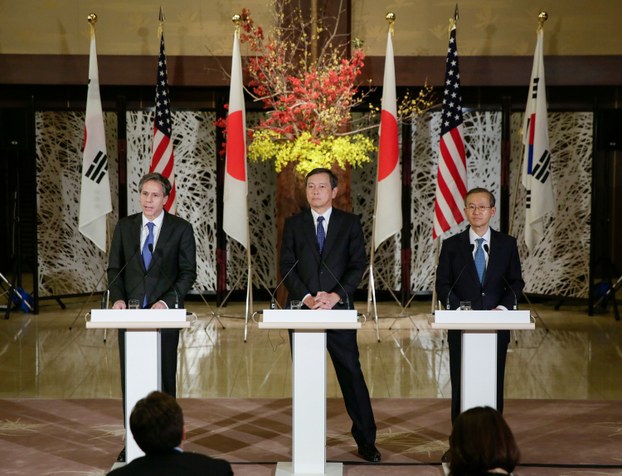




The fourth North Korean nuclear test on Jan. 6 presents us with some riddles, one of which is its timing, which appears rather inappropriate at first glance.
Virtually until the last moment, the North Korean government was working hard to improve relations with other countries, showing no indication that a nuclear test was imminent. On the contrary, North Korean officials put out hints that encouraged observers to believe that, in the immediate future, another exercise in nuclear sabre-rattling was not on the cards for the time being.
Indeed, over the last year or two, North Korea has worked hard to improve relations with Russia, Europe and Southeast Asia. In recent months, there were signs that relations with South Korea had also begun to get better. However, in early January, the fourth nuclear test damaged North Korea’s international standing. While North Korea’s relations with key supporters China and Russia are likely to survive basically intact, there is virtually no chance of positive developments in ties with South Korea, Europe or Australia.
One can argue that North Korea needs nuclear weapons for security reasons, or at least believes that it does, and therefore has to test nuclear devices from time to time. However, even if we accept either or both of these two propositions, this still leaves us with the main issue unresolved: Why so little coordination between diplomats and nuclear engineers? Indeed, why did North Korean political leaders, aware of the coming nuclear test, not order its diplomats to remain passive – i.e. not to waste resources and political capital on attempts to win grace and favor from Europeans and Southeast Asians?
At first glance, indeed, it would have made far more sense to first conduct a nuclear test and brave the unavoidable political fallout, before proceeding with efforts to improve relations with the outside world and get necessary benefits. Such consequences would have allowed the North Korean government to test the value of its deterrent and enjoy the subsequent efforts of its long-suffering and hardworking diplomatic corps. Strangely, this is not what happened.
However, this is not the first time such things have happened under the Supreme Leader, Kim Jong Un. On Feb. 29, 2012, North Korea and the United States signed the so-called ‘Leap-day agreement’. According to the terms of this agreement, North Korea was promised 250,000 tons of food to be shipped in twelve monthly installments so long as it continued not to test missiles or nuclear weapons. Less than two weeks after it signed the deal, North Korea broke the agreement, declaring that missile tests would be commencing soon, thus failing to get a single gram of free food. Once again, it would probably have made more sense to test missiles first before signing an agreement. Had they done so, they would have had a tested missile, and perhaps an even bigger supply of free food. But they chose not to do so – making life for the Obama administration rather easier and cheaper.
Back in 2012, such a diplomatic mishap could be blamed on the turmoil of power transition: the young Kim had only just taken over from Kim Jong Il. However, the fact that the same thing happened again four years later seemingly points to a deeper problem: The North Korean bureaucracy is not coordinating properly.
The North Korean state bureaucracy is known to be highly compartmentalized, with different agencies effectively siloed, seldom if ever exchanging information between themselves. Thus, it is normally the duty of the leadership to ensure that cogs and wheels of the state machine move in unison. One can surmise that, while diplomats worked hard to improve relations acting on instructions from the young Kim, military engineers worked around the clock following the instructions of another adviser to prepare a nuclear test. Both policies could easily be reconciled had top decision makers bothered to coordinate, but obviously they did not. If this is indeed the case, such a lack of coordination is potentially highly dangerous, not only for North Korea, but also for its neighbors.